NETZSCH Измельчение и Диспергирование
Вебинары
Присоединяйтесь к нашим вебинарам по темам Измельчения и Диспергирования
Воспользуйтесь знаниями, полученными на вебинарах NETZSCH, общаясь в интерактивном режиме с нашими экспертами. Прямо со своего рабочего места вы можете в любое время воспользоваться знаниями и опытом наших докладчиков.
Don't miss out on this fantastic opportunity to expand your knowledge and improve your skills. Join our upcoming webinars and learn from industry experts!

Вебинары и White Paper
Зарегистрируйтесь и откройте доступ к нашей библиотеке записей вебинаров и информационных материалов
Дополнительная информацияPrevious Webinars
CHEMICALS & MINERALS
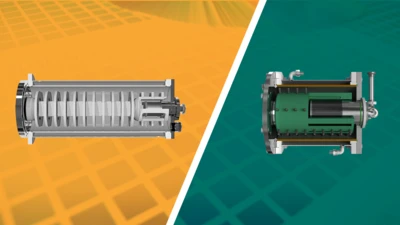
When grinding and dispersing liquid inks there are various mill types, pre-mixers and inline mixers available that can be used to design a production process. However there is no sole one-of-a-kind standard process. In fact a production line needs to be adopted to each customer situation like quality requirements, batch size, level of knowledge of the operators, available space, etc.
The presentation will give a short overview of different equipment for grinding and dispersion of inks and will provide some guidelines on which equipment may be used depending on customers situation.
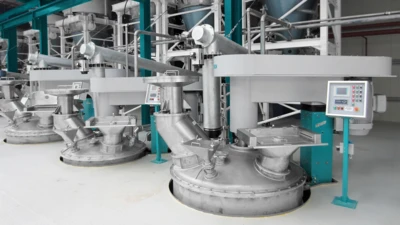
In this webinar NETZSCH Grinding and Dispersing will explore the various options for creating dispersions in large batch sizes.
With various options available today for solving how to produce large batches of product, the seminar looks at the different technologies, their strengths and weaknesses in order to help process owners decide the best solution for their production.
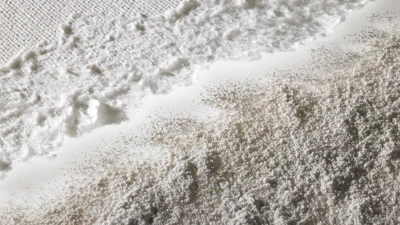
Feed material, product fineness, and throughput rate all play a crucial role in determining the appropriate cutting mill for cellulose processing. This Webinar will be providing valuable insights on the various cutting mill solutions from NETZSCH and their use in different scenarios.
This webinar is a great opportunity for anyone involved in cellulose processing to learn about the latest advancements in cutting mill technology and gain valuable insights into how to optimize their processes.
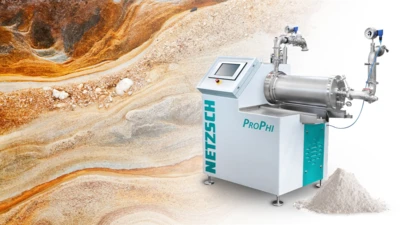
Both the natural minerals and the equivalents produced by calcination processes usually have very coarse particles. These materials settle very easily in pipelines, also due to their high density. Only below a certain particle size does the suspension become stable. For this reason, they first have to be extensively precrushed before they can be further processed into aqueous slurries.
Traditional grinding is usually carried out in ball mills. These mills are very large and inefficient, as they operate without active acceleration of the beads. Here the NETZSCH ProPhi can be an ingenious alternative, for pre-mixing, as a pre-mill up to the finished slurry.
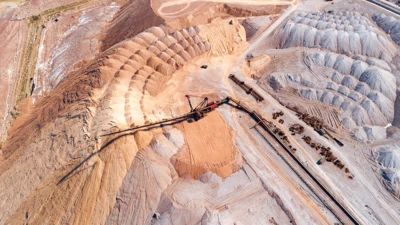
Due to the particle size distribution after grinding, air classifying is a common method to either separate the undesired coarse grains or reduce the fraction of fines (dedusting).
In this webinar the theoretical working principle will be briefly explained and the possibilities of NETZSCH classifiers Mistral, Scirocco and Bora will be highlighted. Special attention will be given on the capabilities of each machine type, as well as on the suitability for abrasive materials.
These capabilities will be supported with particle size distributions of Calcium Carbonate and Quartz as representative materials for non-abrasive and abrasive materials.
FOOD & PHARMA
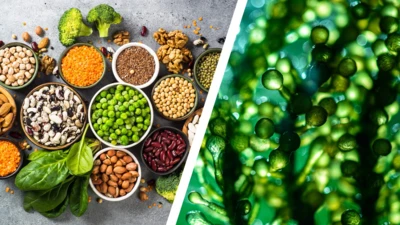
The increasing growth of the worldwide population creates an increasing need for foodstuffs, including the supply of proteins. Therefore and due to sustainable reasons, e.g. protein enriched flours from pulses are used for plant-based food. Furthermore, protein sources like from yeast cell become more and more into focus of attention.
In this session, we are focusing on two different processing technologies: On the one hand, protein shifting via dry milling and air classification of peas and beans. This is an environmentally friendly dry process technology that preserves the high nutritional and functional quality of the used, natural pulses. Furthermore the first section will continue by a short explanation of valorization of press cakes by finest dry milling with our CONDUX with classifier mill. On the other hand, extraction of nutrients from algae and yeast cell: The core technology within a wet downstream process for specific destruction of cell wall fragments with the help of agitator bead mills.
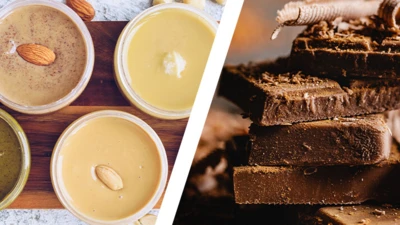
In the Food & Confectionery industry, we are seeing many new challenges for processing of nuts with high moisture content and vegan chocolates. Therefore, NETZSCH is proud to present in this webinar our state of the art technology for processing unroasted nuts with up to 8% moisture with Zumba+ line, and Vegan Chocolates with Rumba® line.
Especially for nuts with high moisture, there is a growing demand for fine milling and keeping at the same time the original unroasted color and flavour, using them in the food and beverage industry. With our new Zumba+ line, we present an inovative solution to obtain a very fine paste without roasting or long process times with low temperature hot air drying.
Also in the area of vegan chocolates, customers are requesting a wide variety of products with high quality ingredients for a sustainable lifestyle. With our Rumba® System, we have a very innovative process available to use oat drink powder or other ingredients as milk substitutes to produce very tasty vegan chocolate alternatives.
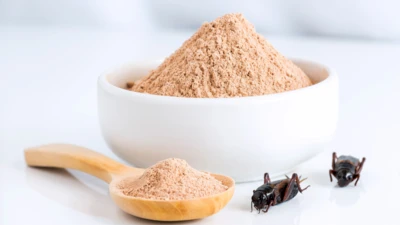
Alternative proteins provide a substantial amount of protein but requires less natural inputs to produce – compared to most common protein sources such as meat or fish. Insects have several benefits and can be used for human food or animal feed.
Rearing and processing of insects is challenging and NETZSCH provides a state of the art technology especially for milling of raw insect larvae or fine grinding of insect flour. With our MasterCream, MasterRefiner as horizontal bead mill or Impact Mill Condux® and ConJet® Mills, NETZSCH is presenting innovative solution for various dry and wet grinding applications.
Insect products have a high protein content from 40 – 70% and can be used in different food applications as whole insects, insect paste or as protein rich insect flour.